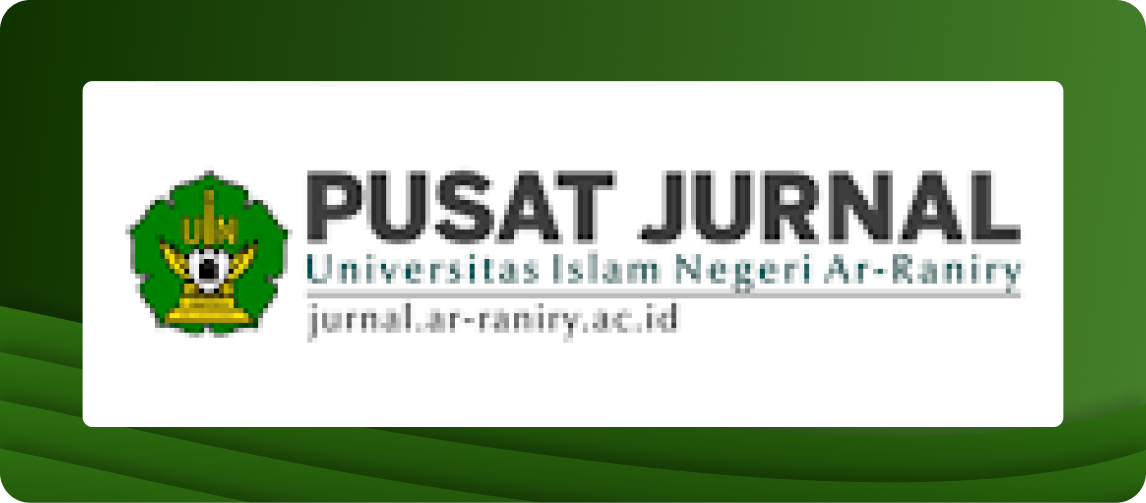The Evaluation of Maqāṣid Asy-Syarī’ah on Discourses of the Islamic Family Law
DOI:
https://doi.org/10.22373/ujhk.v6i1.13035Keywords:
Maqāṣid Syarī‘ah, Kinship, Al-aḥwāl-syakhṣiyyahAbstract
The concept of maqāṣid syarī‘ah and its relationship to family law is an intriguing topic for academic inquiries and discussion. The maqāṣid syarī‘ah is a concept that defines a goal of the Islamic law for the betterment of life in this world and the hereafter. This objective is achieved in human existence by safeguarding religion, soul, reason, progeny, and property. The term al-aḥwāl al-syakhṣiyyah, which refers to kinship relations, can be considered a substitute for the term munākaḥāt, which is commonly used in classical fiqh texts. The numerous issues that intersect with the concept of family law must be viewed through the lens of sharia objectives. How then does the Shari'ah respond? This article attempts to analyze it using a literature review and the maqāṣid syarī‘ah analysis instrument. Based on al-‘ādat from al-Syāṭibī, the understanding of al-aḥwāl al-syakhṣiyyah should be based on the interpretation of the meaning of the texts of the Qur'an and hadith, so that religious texts related to al-awl al-syakhiyyah are not positioned as a form of legal-formal rule, but rather as a search for the meaning contained in religious arguments in the Islamic law
References
Al-Qur’an al-Karim dan Terjemah Bahasa Indonesia, Kudus: Menara Kudus.
Abu Zaid, Nasr Hamid, Dekonstruksi Gender: Kritik Wacana Perempuan dalam Islam, terj. Muhammad Nur Ichwan, Yogyakarta: PSW IAIN Sunan Kalijaga & SAMHA, 1999.
Al-Qurtubi, Al-Jami‘li Ahkam al- Qur’an XVIII, Beirut: Dar al-Kutub al-‘Ilmiyyah, 1413 H/1993 M.
al-Syatibi, Abu Ishaq, Al-Muwafaqat fi Usul al- Ahkam, ed. Muhammad al-Khudar Hussain at- Tulisi, Beirut: Dar ar-Rasyadah al-Hadisah, t.t.
Apeldoorn, L.J. Van, Pengantar Ilmu Hukum, cet. 26, Jakarta: Pradnya Paramita, 1996.
As-Sabuni, Abdurrahman, Mada Hurriyyah al-Zaujain fi al-Talaq fi al-Syari’ah al-Islamiyyah, Beirut: Dar al-Fikr, 1968.
Azis, Dahlan Abdul, dkk, Ensiklopedi Hukum Islam I, Jakarta: PT. Ichtiar Baru van Hoeve, 1996.
Khallaf, ‘Abdul Wahhab, ‘Ilm Usul al- Fikih, Kairo: Dar al-Kuwaitiyyah, 1968.
Mahmood, Taher, Personal Law in Islamic Countries: History, Text and Comparative Analysis (New Delhi: Academy of Law and Religion, 1997.
Maula, Bani Syarif, Kajian al-Aḥwāl al-Syakhṣiyyah dengan Pendekatan Maqāṣid asy-Syarī’ah, Jurnal Al-Hukama’, Vol. 3, Juni 2013.
Nasution, Khoiruddīn, Pengantar dan Pemikiran Hukum Keluarga (Perdata) Islam Indonesia, Yogyakarta: ACAdeMIA dan TAZZAFA, 2010.
Nasution, M. Syukri Albani, Filsafat Hukum Islam, Jakarta: Raja Grafindo Persada, 2014.
Rosyada, Dede, Hukum Islam dan Pranata Sosial, Cet. 5, Jakarta: Rajawali Pers,1999.
Sabiq, Al-Sayyid, Fikih al-Sunnah II, Beirut: Dar al-Fikr, 1397 H/1977 M.
Taufiqurohman,dkk., Pembahruan Hukum Keluarga di Dunia Islam, Bandung: Media Sains Indonesia, 2021.
Downloads
Published
Issue
Section
License
Authors who publish in El-Usrah: Jurnal Hukum Keluarga agree to the following terms:
Authors retain copyright and grant the journal right of first publication with the work simultaneously licensed Attribution-ShareAlike 4.0 International (CC BY-SA 4.0) that allows others to share the work with an acknowledgment of the work's authorship and initial publication in this journal.
Authors are able to enter into separate, additional contractual arrangements for the non-exclusive distribution of the journal's published version of the work (e.g., post it to an institutional repository or publish it in a book), with an acknowledgment of its initial publication in this journal.
Authors are permitted and encouraged to post their work online (e.g., in institutional repositories or on their website) prior to and during the submission process, as it can lead to productive exchanges, as well as earlier and greater citation of published work. (See The Effect of Open Acces)

















